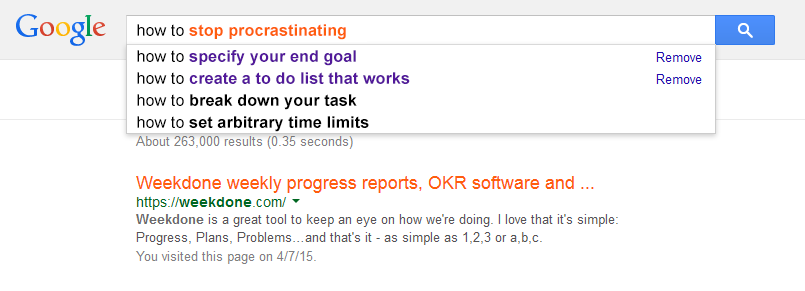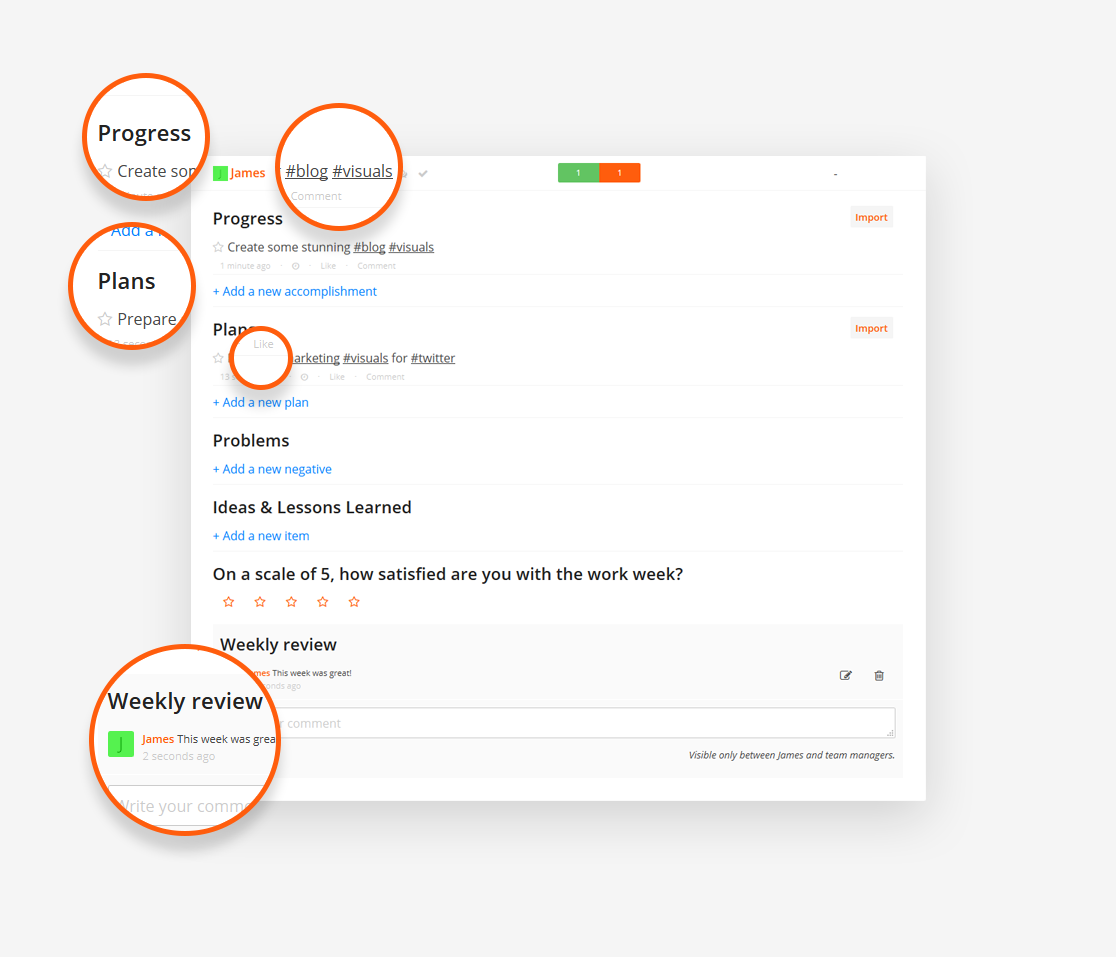Procrastination is one of the biggest killers of productivity. We were meaning to write about this topic but, ironically, kept putting it off for some time.
Why do we keep constantly postponing our duties? One of the leading theories says that procrastination is a coping mechanism for dealing with stress and overburden.
Since every human deals with emotions differently, there is no one sure way to overcome it. You have to work out your own recipe that works best. However, we can help you identify some of the pitfalls along the way.
-
You don’t specify your end goal
Lack of focus and determination usually comes hand in hand with the lack of clear objective. And even when you do have a goal, it’s difficult to grasp what exactly it will accomplish.
This is where the framework of OKR comes into play.
OKR, or Objectives and Key Results, is a tool used by the likes of Google, Twitter, LinkedIn and many others. Even when you work on your own, it still comes in handy to help you define your personal objectives.
The rule of thumb states that your objectives need to be ambitious and inspirational. You should look forward to accomplishing them. Under each objective, write down 3-4 key results that it will bring. These results should be measurable and very clear.
Have your goals in front of you at all times to keep a firm grasp on your vision.
-
Your to-do list is too long
When you are decided about the objectives, your next logical step is to compile a to-do list. You open your notebook, write down all of 35 things you need to do, and…
That’s it.
You went overboard with your list, and as a result, your procrastination will only thrive. Too large of a scope can frighten us into indecision. A good to-do list has every item structured. A great to-do list has an order of priority.
So instead of putting everything on paper, focus on what is important. Use Eisenhower Matrix to decide which steps of your plan are most important, which are urgent and which steps can wait. You can also use this matrix in combination with a weekly planning tool like Weekdone.
Additionally, you can compile a not-to-do list where you will jot down the things that distract you the most. Not every distraction is harmful to your productivity, but surely you can live a couple of hours without tweeting about it.
-
You don’t break your task down into smaller tasks
The most common way people go about completing their task is to start hacking at it and see what happens.
This approach is extremely unproductive and stems from the fact that, for once, we focus too much on a bigger picture. It is best to understand that this picture is actually a mosaic that consists of myriads of different parts.
Try to observe this principle in everything you do. When we get dressed, we don’t simply jump into a ready-to-go suit. We put on every individual item. Same goes for every other mundane action: it is a sequence of certain steps.
The main advantage of breaking down your task into smaller ones is not only that you will manage your work faster but also that you will experience a degree of accomplishment. This will inspire you to carry on with the rest of the task.
Divide and conquer!
-
You set arbitrary time limits
Planning out an entire day in excruciating details is, at best, a gamble. Chances are that you will be overwhelmed with time constraints and tempted to bargain your way out of it. Again, try to think about your order of importance first.
You can also take up a piece of advice shared by James Clear and follow his simple 2-Minute Rule. This rule states that you need to start doing the task right now, but spend no more than two minutes on it.
Why only two?
The idea behind this is that due to inertia of human behaviour, it is hard to stop doing something in the middle of it. Two minutes easily transform into a couple of hours. We pick up a book, read the first page, and next thing we know, we’re on chapter 13 and this close to finding out the real culprit.
Or how about putting a single sentence on paper and then snapping out of it some hours later, with full-on paragraphs written out? That’s exactly how this article was written.
-
You think you are a perfectionist
This happens to the best of us. The competitiveness of human mind forces us to think that it is worse to do something below expectations than it is to never do anything at all.
Naturally, the ideal we strive for is so high up among the clouds that every effort seems pointless in comparison. Why bother if what I do isn’t an immediate work of art?
It’s okay. We let it go. You can do, too.
This doesn’t mean that you have to settle for mediocrity. After all, nobody told Michelangelo that maybe he should cut down on the anatomical correctness. But stay realistic about your task. No matter what anybody says, greatness doesn’t come from overexerting yourself.
Do not postpone your battle with procrastination until the better times. Start now!

